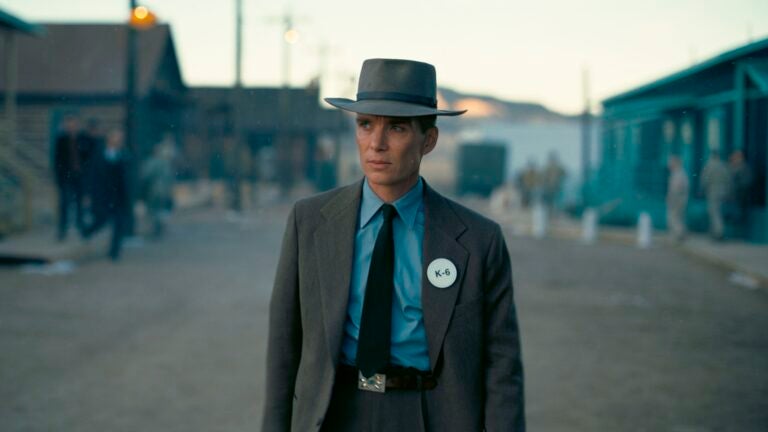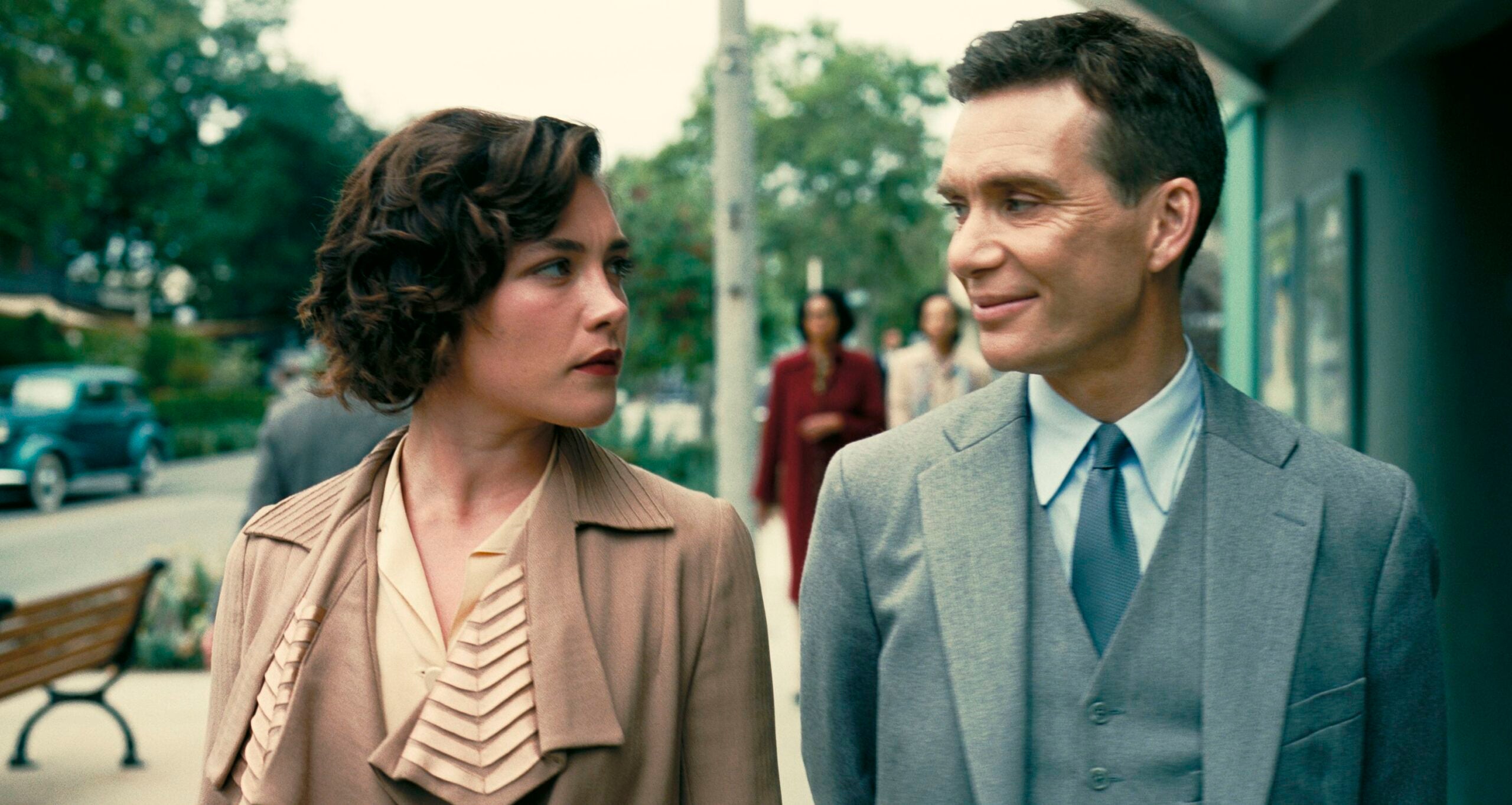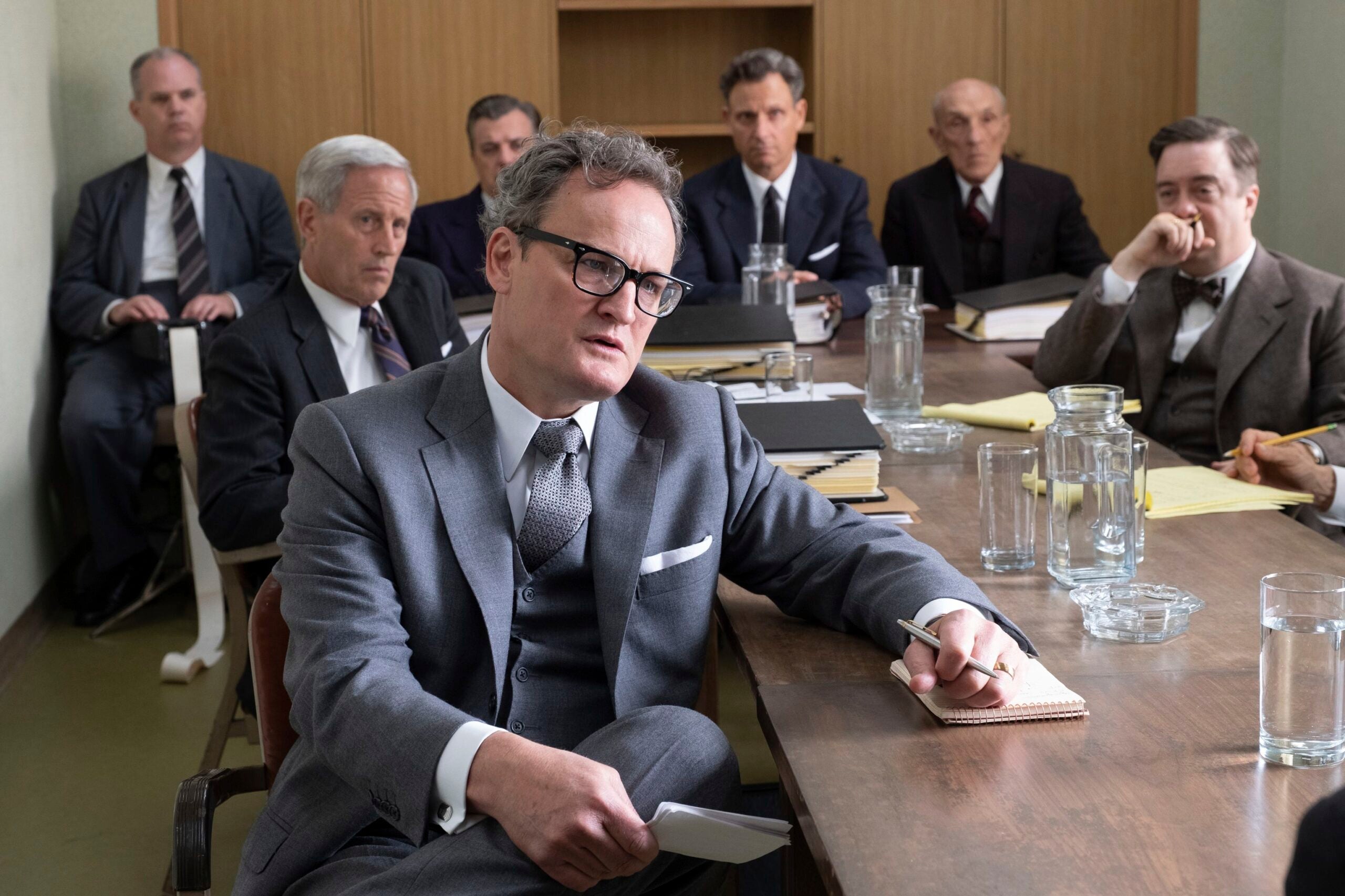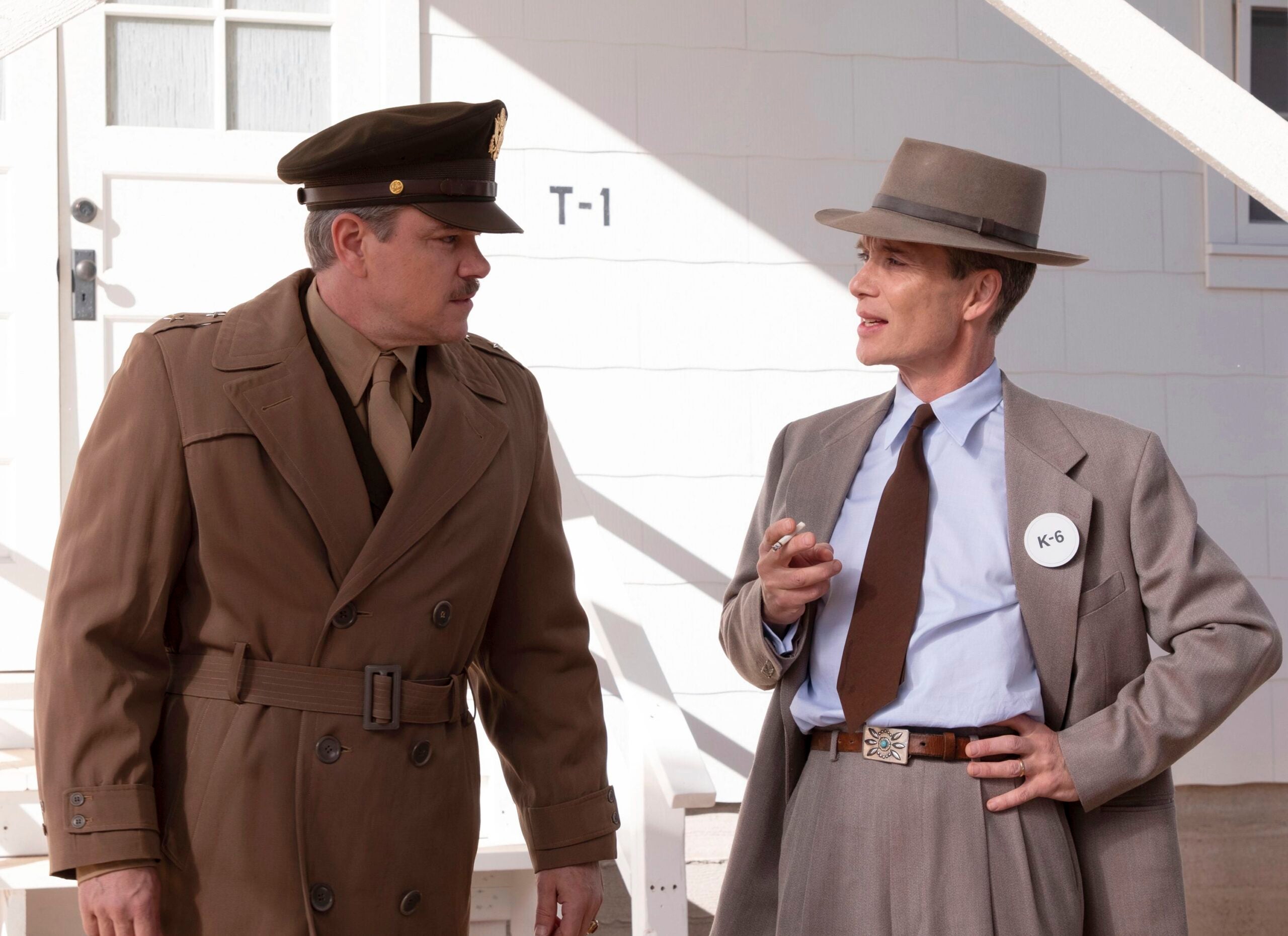Need weekend plans?
The best things to do around the city, delivered to your inbox.

There’s a moment in Christopher Nolan’s historical epic “Oppenheimer” when a skeptical scientist asks the titular physicist (Cillian Murphy) why he should join him in constructing the atomic bomb. Before Oppenheimer can answer, Lieutenant General Leslie Groves Jr. (Matt Damon) cuts in, berating the scientist for even considering not being part of “the most important f****** thing to happen in the history of the world.”
If you’ve followed the year-long promotional campaign for “Oppenheimer,” you might be under the impression that Nolan’s newest film is the cinematic equivalent of the Manhattan Project. Filmmaker Paul Schrader (“The Card Counter”) called it both the best and “most important film of the century.” AMC has already sold more than 40,000 tickets to double features of “Barbie” and “Oppenheimer” (an unlikely phenomenon dubbed “Barbenheimer“). The Coolidge Corner Theatre, which has been in business since 1929, has already sold more presale tickets for both films than any other movies in its history.
So does “Oppenheimer” live up to the hype? For the most part, yes.
The movie is an incredible achievement, and might be one of the most thorough, ambitious historical dramas ever put to film. Every single aspect of the movie is huge, from the cast to the real, non-CGI explosions Nolan created to mimic the Trinity Test. But “Oppenheimer” is also quiet and understated. Much of its three-hour runtime functions as a tense courtroom drama and a sprawling game of 1940s backroom politics. Most of all, it’s a fascinating character study of a man stuck living in a world of absolutes whose mind never seemed to be satisfactorily made up about anything.
“Oppenheimer” tells two stories simultaneously, following both Oppenheimer’s rise to world renown as father of the atomic bomb as well as his downfall at the hands of Red Scare politicians and jealous colleagues.
Early on, we see Oppenheimer teach his first lecture at UC-Berkeley, where he asks his lone student whether light exists as a ray or a particle. The correct answer is both, the professor says, and accepting these two seemingly contradictory statements simultaneously is integral to unlocking the field of quantum physics.
It’s a thesis statement for the troubled but brilliant man, and Nolan shows us over and over the difficulty of living life as a man of two minds. After a professor upbraids young Oppenheimer in front of the whole class, he poisons the man’s apple — only to rush back later and surreptitiously remove it. He attends a communist party meeting because he finds the theories interesting, but chides his brother for joining the party. He carries on multiple affairs, and even leaves Los Alamos at a crucial point in the atom bomb’s development to visit his distraught mistress (Florence Pugh) because, as he is later forced to testify, “she needed me.”

As Oppenheimer, Murphy is almost never out of frame. He’s so central to the film that Nolan took the rare step of writing the entire script in the first person from Oppenheimer’s perspective. He is supremely confident from the start, but his eyes slowly begin to dim as the weight of his actions seep into his subconscious. When the Trinity Test is finally complete, he removes his protective eyewear to allow the full magnitude of his actions to wash over him, in a scene reminiscent of Murphy’s 2007 solar-centric sci-fi masterpiece “Sunshine.”
Even before the accolades begin rolling in, Oppenheimer begins to question (but never definitively answer) whether the bomb was needed at all. The post-WWII propaganda claim, still repeated today, that the bomb “saved lives,” is held up for scrutiny, and Oppenheimer’s opposition to construction of the hydrogen bomb makes enemies of formerly close colleagues. All of this leads to the powers-that-be slowly pushing Oppenheimer out of the picture by dredging up his communist dalliances and airing his extramarital affairs as evidence of impaired judgment.

Despite Murphy’s omnipresence, there’s plenty of room for the supporting cast to shine. Nolan doesn’t cut corners the way that a standard biopic might, refusing to create composite characters or mess with the timeline of history to serve the film. As a result, you’ll be spotting literally dozens of performers you know popping in and out of frame, even if only for a line or two. Oscar winning actors like Gary Oldman, Rami Malek, and Casey Affleck each have barely more than a scene to their name, but make their impact deeply felt with limited screen time.
The prime supporting players are outstanding as well. Damon is the most consistent comic relief, playing a gruff but loyal general overseeing Oppenheimer’s work. As a longtime Oppenheimer colleague turned adversary, Robert Downey Jr. has finally found a post-Marvel role that allows him to showcase his considerable talents. Jason Clarke (“Chappaquiddick”) is delightfully detestable as one of the film’s only out-and-out villains. Even the two female roles, typically a Nolan blind spot, have slightly more depth than usual. Playing Oppenheimer’s wife, Emily Blunt seems stuck in an alcohol-induced malaise, but snaps to life in the film’s final act, lashing out at the men who dare try to tear her husband down.

In his quest for telling the most epic, authoritative, historically accurate version of Oppenheimer’s life, Nolan has succeeded. This dedication means that a few scenes and characters probably could have been left on the cutting room floor, especially after the bomb at Los Alamos is detonated. The closest analogue might be Oliver Stone’s presidential drama “JFK,” which combines masterful filmmaking, Cold War paranoia, and a three-plus hour runtime. “Oppenheimer” has none of the propulsive action or mind-bending sci-fi that the director is known for. But at a moment in time when the world’s atomic scientists say that the planet is closer to nuclear catastrophe than we’ve been since Hiroshima and Nagasaki, “Oppenheimer” quietly, persistently asks us to pay attention, lest we fail to learn from history’s mistakes.
Rating: *** 1/2 (out of 4)
The best things to do around the city, delivered to your inbox.
Stay up to date with everything Boston. Receive the latest news and breaking updates, straight from our newsroom to your inbox.
Conversation
This discussion has ended. Please join elsewhere on Boston.com